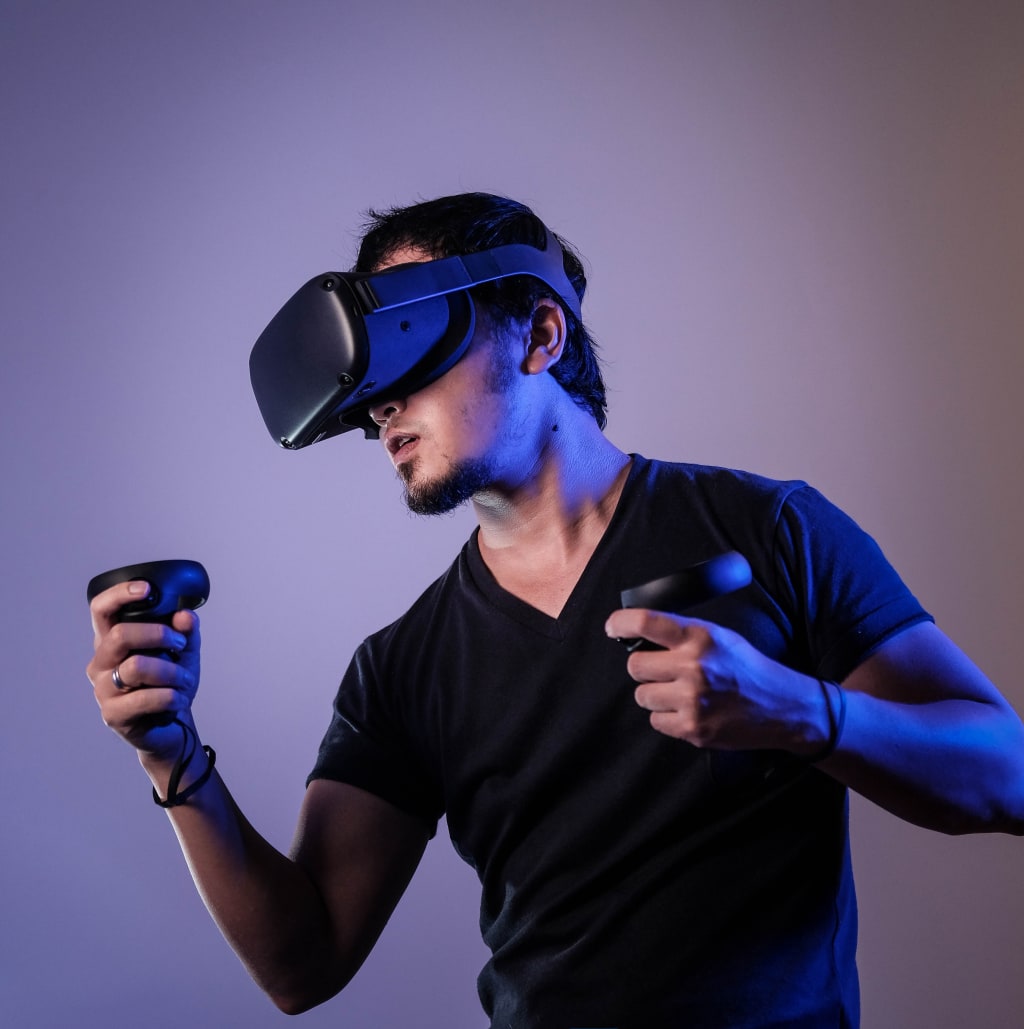The future of work and leisure in the metaverse
"Imagine a World Where Work and Leisure Take Place in Virtual Reality: The Metaverse"

Definition of the metaverse and its potential impact on work and leisure
Some potential ways in which the metaverse could shape the future of work and leisure include:
Virtual meetings and remote work:
The metaverse could enable people to participate in virtual meetings and work remotely from anywhere in the world, potentially making it easier for people to collaborate and communicate with colleagues and clients.
Virtual reality training and simulations:
The metaverse could be used to create immersive training and simulation experiences for a variety of industries, including healthcare, education, and the military.
Virtual events and entertainment:
The metaverse could be used to host virtual events and entertainment experiences, such as concerts, sporting events, and theme parks.
Virtual real estate and commerce:
The metaverse could potentially become a new platform for buying and selling virtual real estate and conducting e-commerce.
Virtual socializing and communities:
The metaverse could provide a new platform for people to socialize and connect with others, potentially leading to the creation of new virtual communities.
Potential benefits and challenges of virtual work in the metaverse
Potential benefits of virtual work in the metaverse include:
Increased flexibility:
Virtual work in the metaverse could allow people to work from anywhere, potentially giving them more flexibility in terms of where they live and work.
Reduced costs:
Virtual work in the metaverse could reduce the need for physical office space, potentially leading to cost savings for businesses.
Increased collaboration:
The metaverse could provide new tools and platforms for collaboration, potentially making it easier for teams to work together remotely.
Improved work-life balance:
Virtual work in the metaverse could allow people to better balance their work and personal lives, as they could potentially work from home or other locations that are convenient for them.
Potential challenges to virtual work in the metaverse, including:
Technical issues:
Virtual work in the metaverse could be subject to technical issues such as lag, connectivity problems, and hardware compatibility.
Social isolation:
Virtual work in the metaverse could lead to social isolation for some people, as they may not have the same level of face-to-face interaction with colleagues as they would in a physical office.
Lack of boundaries:
Virtual work in the metaverse could make it more difficult for people to separate their work and personal lives, potentially leading to work-life imbalance.
Security concerns:
Virtual work in the metaverse could raise security concerns, such as the risk of hacking or data breaches.
Overall, the benefits and challenges of virtual work in the metaverse will depend on the specific context and the needs and preferences of individual workers and organizations.
Virtual reality training and simulations
Virtual reality (VR) training and simulations are a type of technology that allows users to experience and interact with a computer-generated environment as if it were real.
VR training and simulations can be used in a variety of industries, including education, military, aviation, and healthcare, to provide immersive learning experiences and practice for a variety of tasks and situations.
In VR training and simulations, users typically wear a headset that displays a computer-generated environment and may also use other equipment, such as hand controllers, to interact with the virtual world.
The headset tracks the user's movements and adjusts the virtual environment accordingly, creating a sense of immersion.
There are many benefits to using VR training and simulations. For example, they can provide a safe and controlled environment for people to practice tasks or procedures, they can reduce the need for expensive equipment or physical materials, and they can allow users to experience situations that would be difficult or impossible to recreate in the real world
Conclusion:
Summary of the potential impact of the metaverse on work and leisure:
Increased remote work: The metaverse could potentially allow people to work remotely in a virtual office, allowing for greater flexibility and potentially reducing the need for physical office space.
Enhanced socializing: The metaverse could provide a platform for people to interact and socialize in a virtual environment, potentially reducing the need for physical gatherings and increasing the ability for people to connect with others from different locations.
New forms of entertainment: The metaverse could create new opportunities for leisure and entertainment, such as virtual reality games and experiences, virtual concerts and events, and virtual tourism.
Increased accessibility: The metaverse could potentially make certain activities and experiences more accessible to people with disabilities or those who live in remote areas.
Changes to the way we consume media: The metaverse could potentially change the way we consume media, such as movies and TV shows, by allowing us to experience them in a more immersive and interactive way.
It is important to note that the potential impact of the metaverse on work and leisure will depend on how it is developed and adopted, and it may also have unintended consequences.
Future outlook for the development and adoption of the metaverse:
One of the main challenges for the development of the metaverse is the creation of a virtual environment that is seamless and realistic enough to be believable to users. This requires advances in VR technology, including improvements in display and tracking systems, as well as the development of more sophisticated algorithms for simulating realistic environments.
Another challenge is the integration of the metaverse with the physical world. This includes developing ways for users to interact with virtual objects and environments in a natural and intuitive way, as well as creating ways for the virtual and physical worlds to interact and influence each other.
Despite these challenges, there is growing interest in the development of the metaverse, and it is likely that we will see significant progress in the coming years.
In the future, it is possible that the metaverse could become an integral part of our daily lives, with applications in a wide range of areas, including work, education, entertainment, and socializing.
However, it is important to note that the adoption of the metaverse will depend on a variety of factors, including the availability of VR technology, the willingness of individuals and organizations to use it, and the ability of the metaverse to deliver on its promise of creating a more immersive and interactive virtual world.






Comments
There are no comments for this story
Be the first to respond and start the conversation.